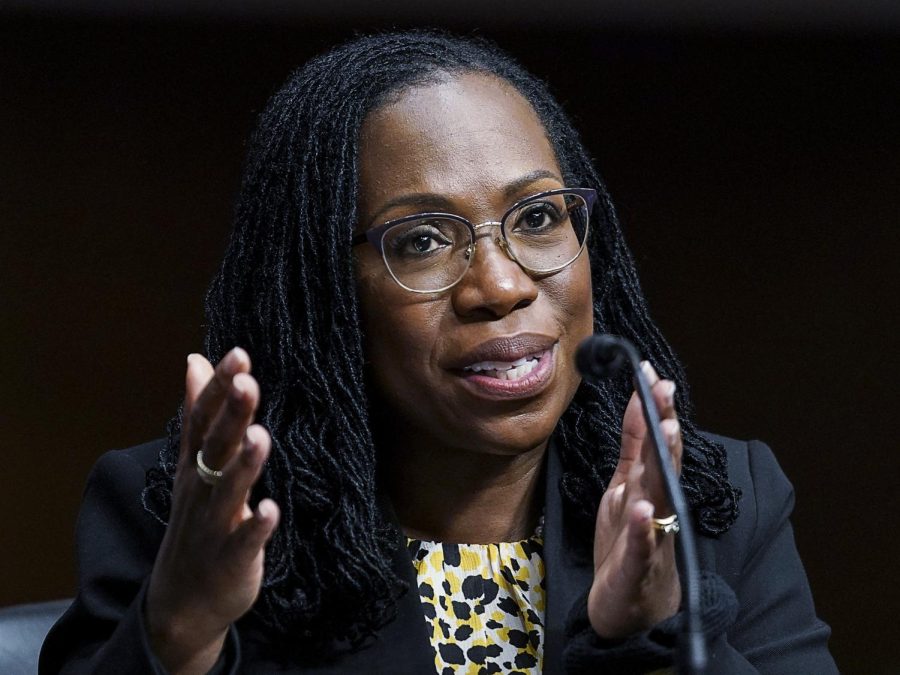Ketanji Brown Jackson confirmed as first Black woman to serve on the Supreme Court
Four days after her nomination hearing, Jackson was approved by the Senate
According to NPR, Biden described Jackson as a consensus-builder with a “pragmatic understanding that the law must work for the American people.”
April 22, 2022
Ketanji Brown Jackson was confirmed as the first Black woman to serve on the Supreme Court on April 7 after a four-day-long nomination hearing, making American history.
She was approved onto the highest court in the country with a 53-47 vote with three Republicans voting in favor of her confirmation alongside the 50 Democrats (including two independents) in the Senate.
“Even in the darkest times, there are bright lights,” Senator Chuck Schumer (D) said. “Today is one of the brightest lights. Let us hope it’s a metaphor, an indication of many bright lights to come.”
In contrast with the outpouring of love and support shown for her confirmation, some Senators have voiced their concerns with Jackson becoming a Supreme Court Justice because of the political party she identifies with.
“When it came to one of the most consequential decisions a president can make, a lifetime appointment to our highest court, the Biden administration let the radicals run the show,” Senator Mitch McConnell (R) said. “The far left got the reckless inflationary spending they wanted. The far left has gotten the insecure border they wanted. And today, the far left will get the Supreme Court justice they wanted.”
Despite those who oppose Jackson, her elevation to the Supreme Court as the first Black woman in American history makes her a role model for younger generations and the representation that continues to diversify the American government.
“I’m ecstatic that there’s a Black woman in the Supreme Court,” said junior Victoria King. “Especially since she’s a dark skin Black woman with locs. We don’t receive much representation in the media and politics.”
“Seeing a Black woman in the Supreme Court has been such an inspiration for me to create bigger goals for myself and reach them regardless of what’s seen as ‘normal,’” junior Lori Wilson said.
Jackson’s historic confirmation exemplifies how women of color continue to break glass ceilings and become the representation needed to diversify the nation and inspire younger generations to strive to follow in their footsteps.
“It has taken 232 years and 115 prior appointments for a Black woman to be selected to serve on the Supreme Court of the United States,” Jackson said. “We’ve made it, all of us. Our children are telling me that they see now, more than ever, that here in America anything is possible.”








